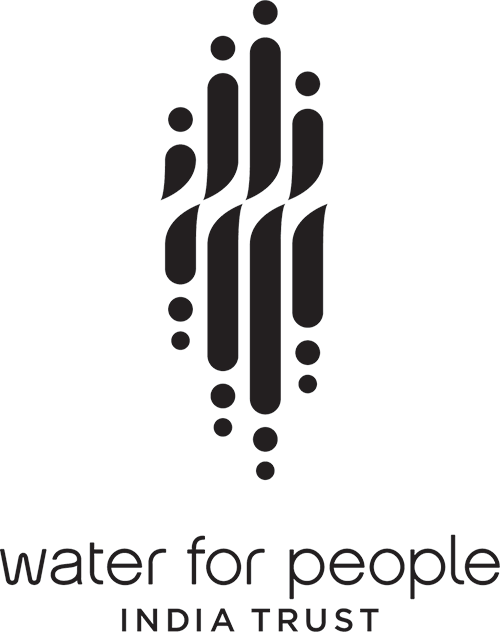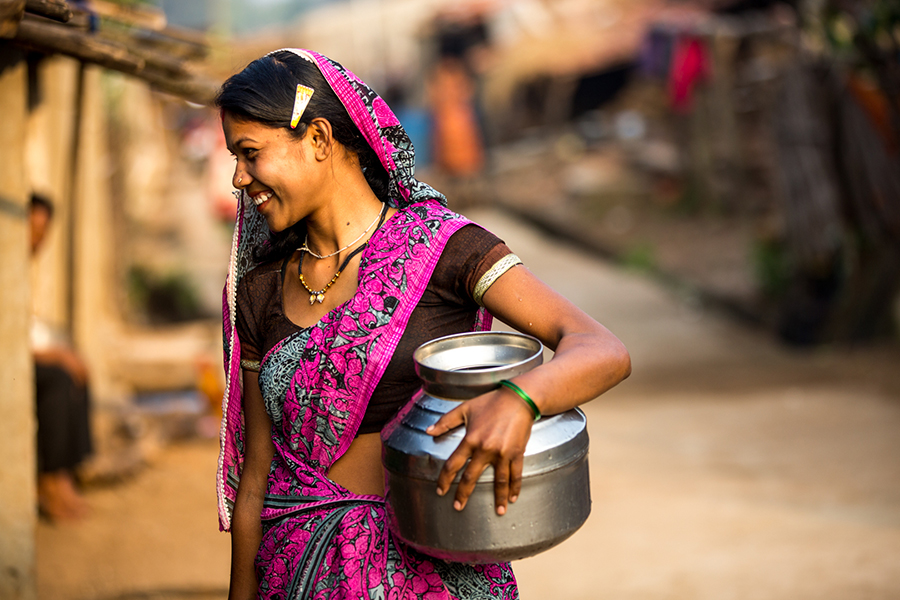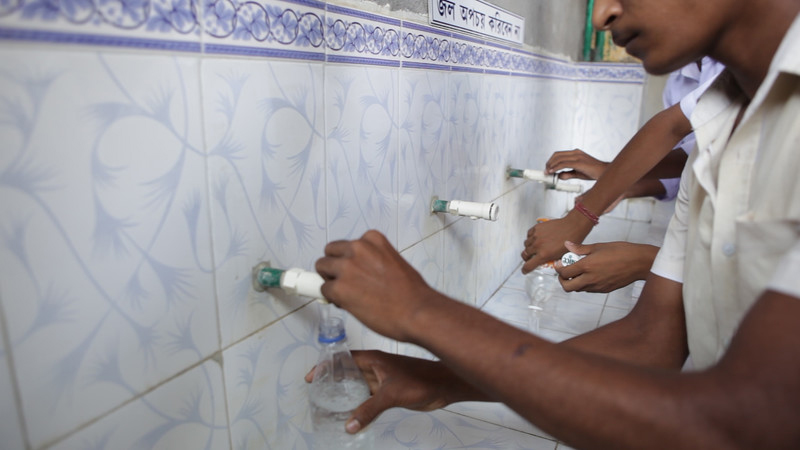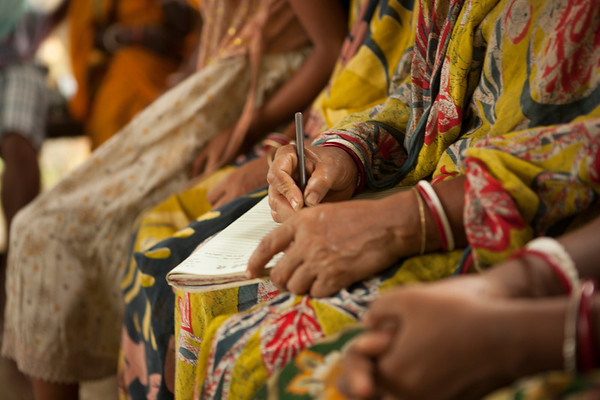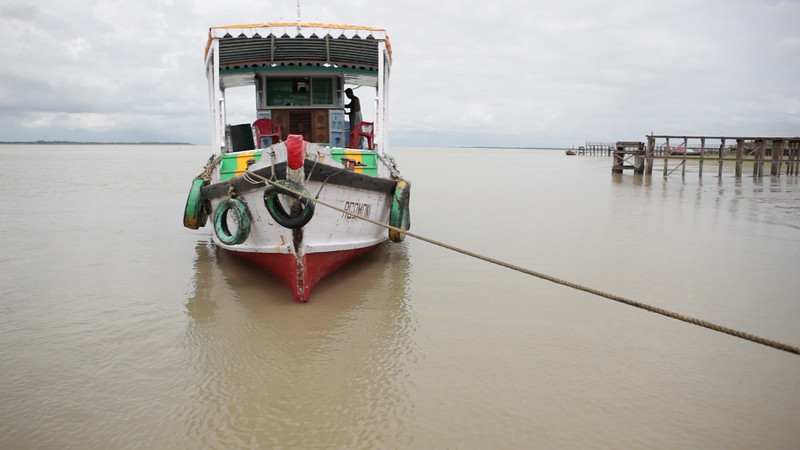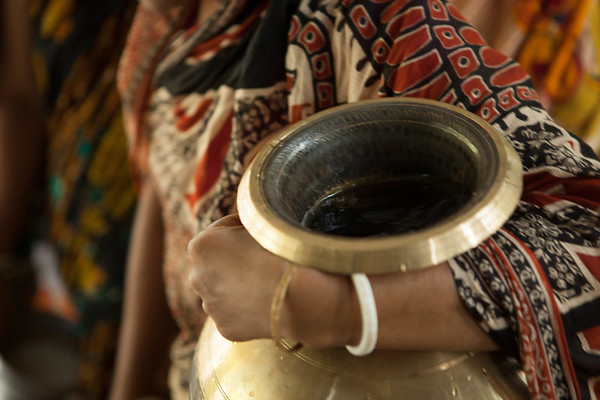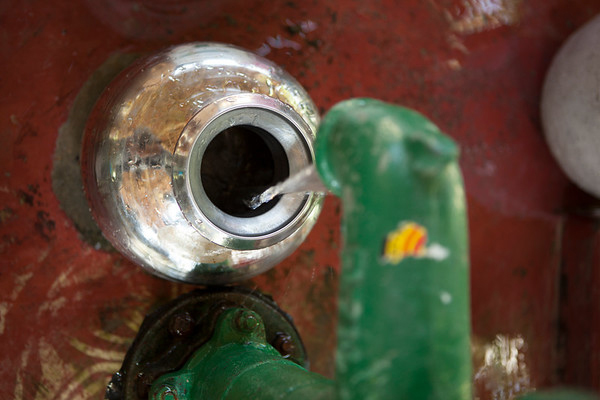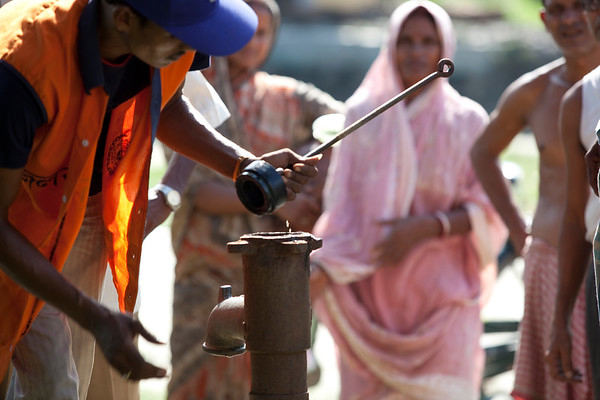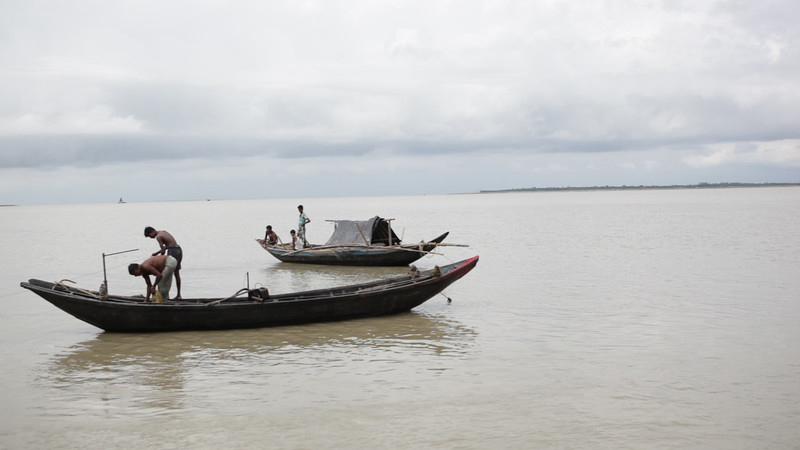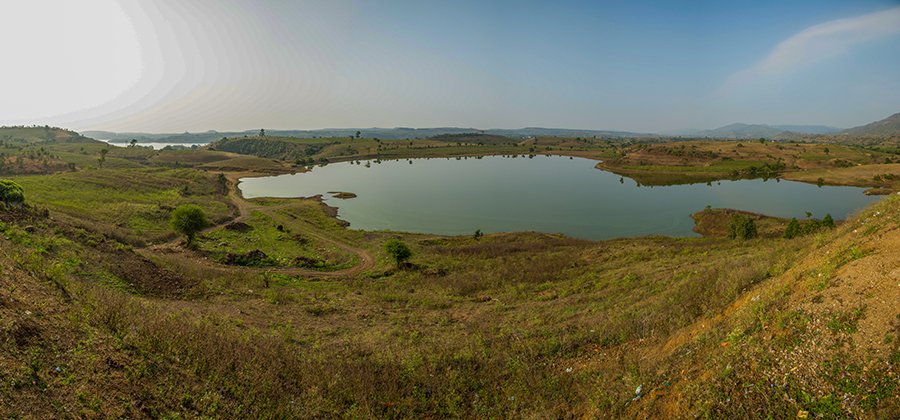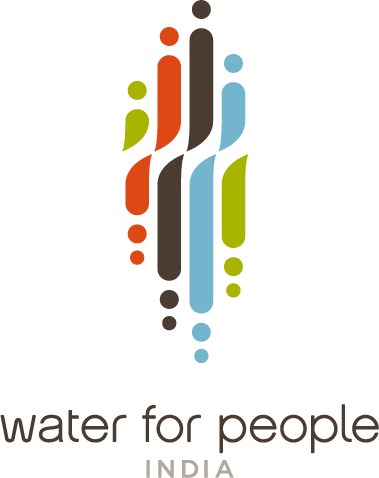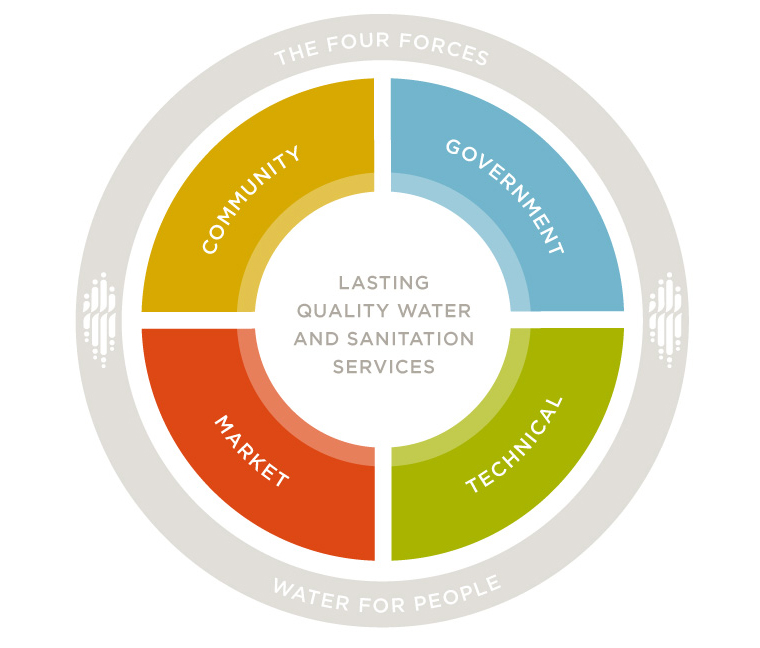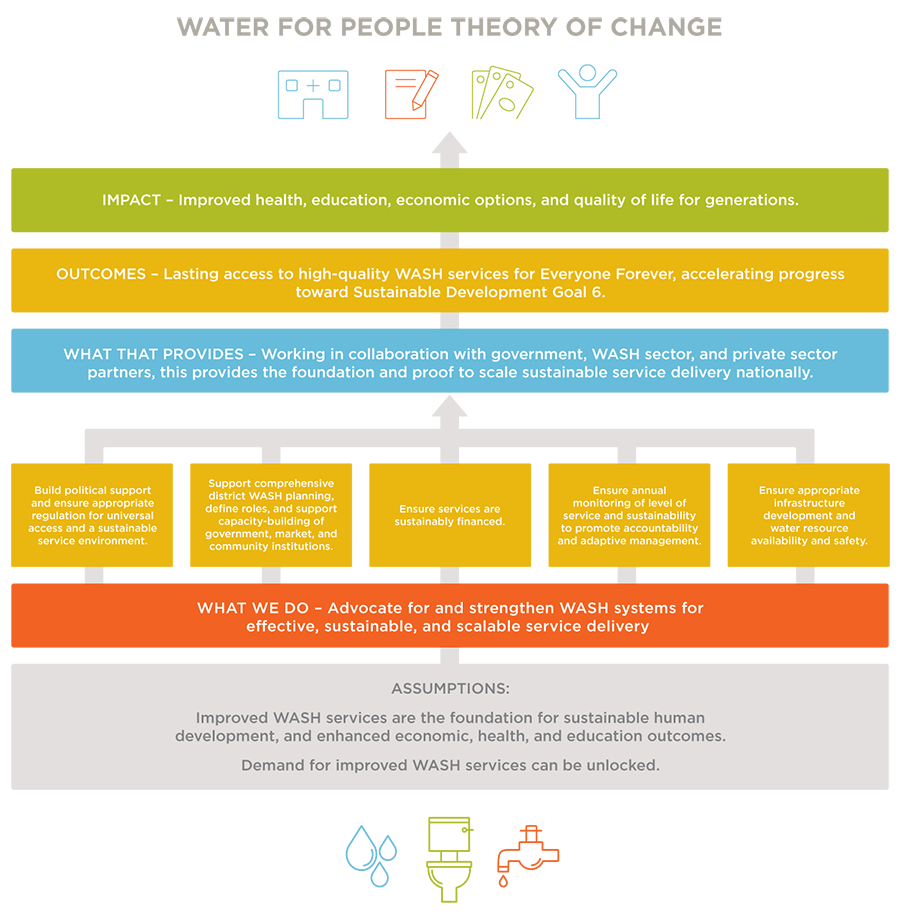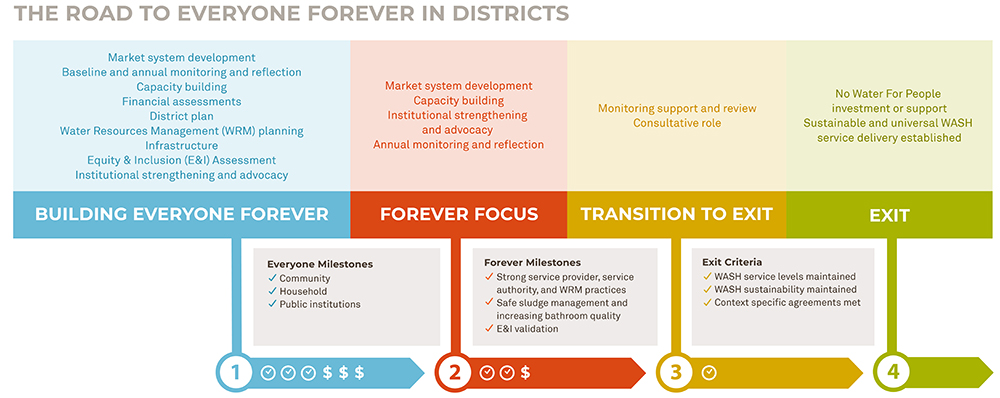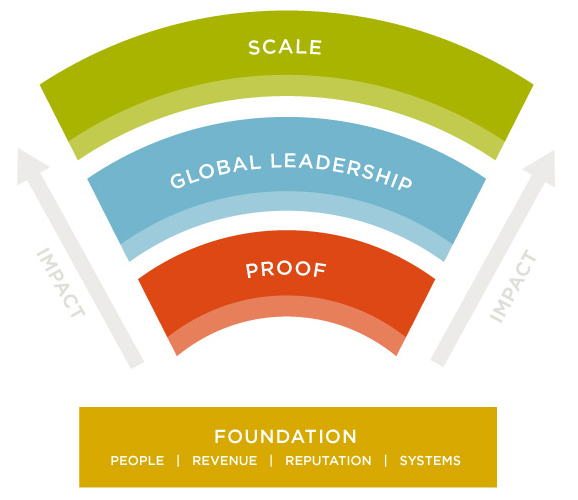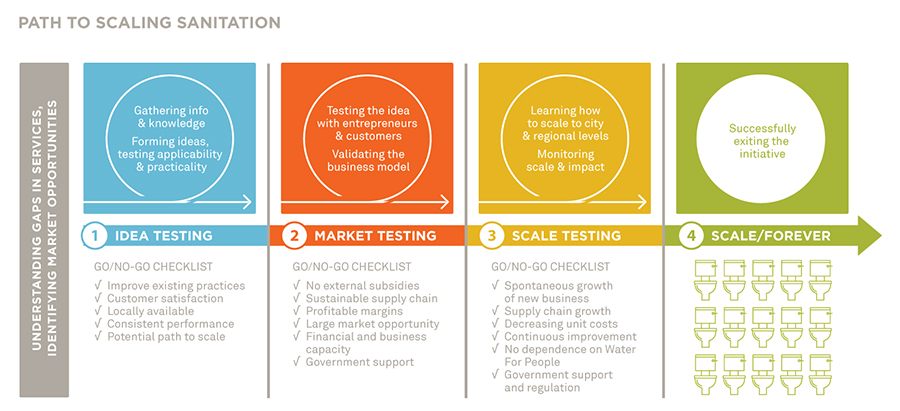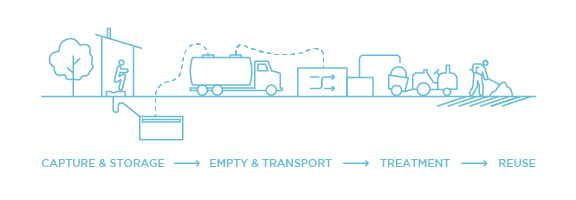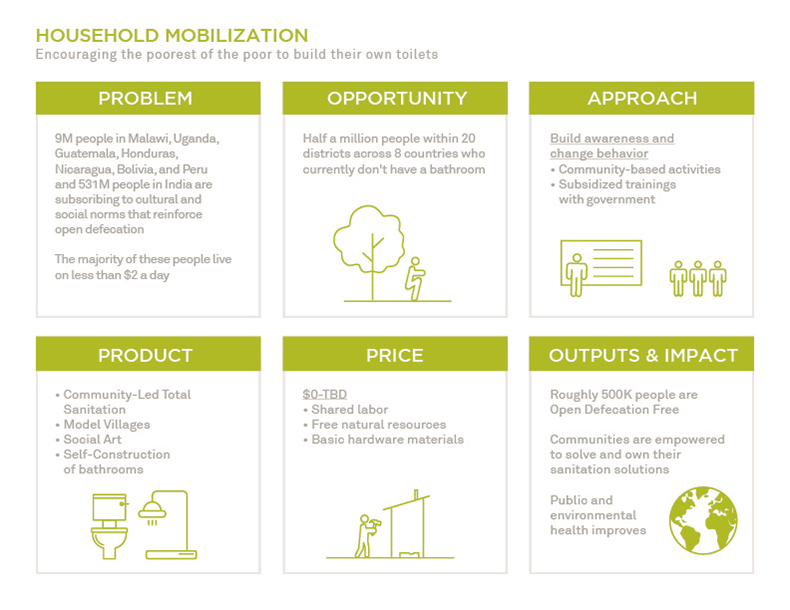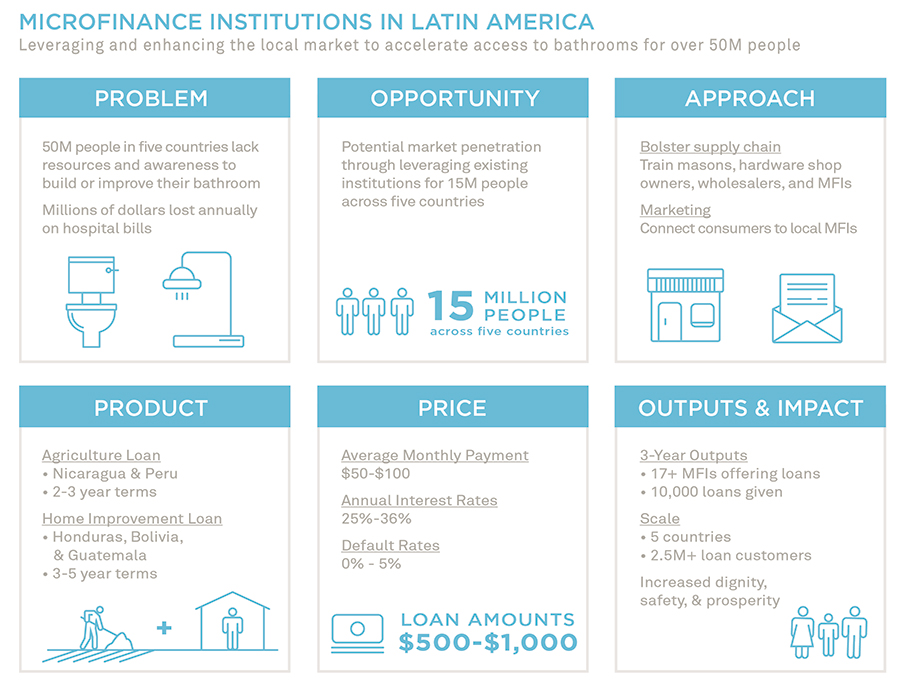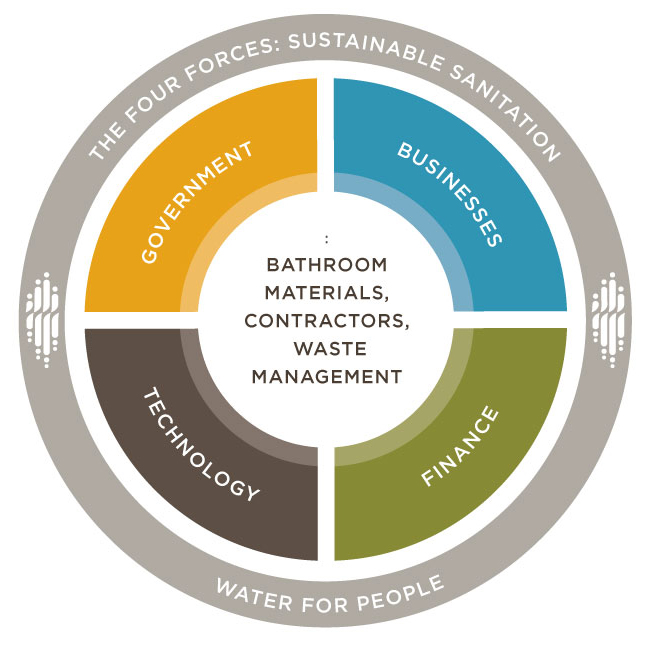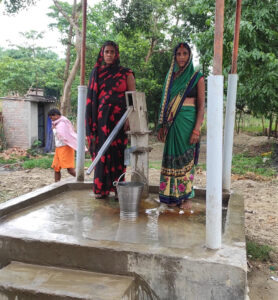
Gayatri Devi’s family takes great pride to be from the quaint village of Hirauta Dumma in Sheohar, where they have resided for the past 25 years. Her husband, Baccha Sah, works hard as a construction and agricultural labourer, providing the family with a monthly income of about Rs.10,000.
Noteworthy is the commitment of Gayatri Devi, a mother of six kids aged from 7 to 16 years, to guaranteeing their education. Her children, who are all currently enrolled in school, are the epitome of resilience and hard work.
When the project team first visited Hirauta Dumma in 2017, they noticed that Gayatri Devi’s family much like most others in the village, frequently suffered from gastric problems and diarrhoea because of scarce water supply. They ascribed this to the lone shallow depth hand pump which was the only source of clean drinking water for the entire village.
On interacting with Gayatri Devi during group meetings, Water For People India found that she was unable to save any money as a significant portion of their hard-earned income was used to pay for medical bills and doctor visits. She worried about the health and well-being of her family, but the cycle of illness and financial hardship just seemed inescapable.
She was in desperate need of a solution that would give her family access to clean, safe drinking water without jeopardizing their financial stability.
After our project Sheohar team conducted a comprehensive analysis of the village’s water supply, it proposed installing a 220 feet deep community hand pump, which would provide everyone in the village with easy access to safe and clean drinking water.
The proposal was met with enthusiastic support from the community, who agreed to contribute funds towards the installation of the hand pump. The community successfully installed the deep hand pump in 2017, marking an important milestone in their quest for safe drinking water.
Community owned initiative
Gayatri Devi was among the first few to use the new hand pump and noticed an immediate improvement in the quality of the water they were drinking. She was pleased that the monthly tariff for the operation and maintenance of the water point was set at only Rs.10.
Within a couple of months, Gayatri Devi noted that her family’s general health had significantly improved. She was now able to save a small amount from her husband’s earnings each month thanks to fewer medical expenses.
Her newfound financial security enabled her to invest in the construction of a toilet for her home, which was essential for her family’s overall health and wellbeing. More families in the village followed suit and the sanitation situation of the area upgraded.
Gayatri Devi expressed her heartfelt gratitude to the Water For People India team and exclaimed about the situation saying, “Itni chhoti si baat se itna bada asar hota hai ye hamko nahi pata tha” (I never knew something so small could have such a big impact).
She also expressed her deep desire to see their children receive a good education and find work, allowing them to break the cycle of poverty and live a better life. With tears in her eyes, she said that she sees the broader social and economic benefits health and sanitation can provide to communities and is hopeful for her children’s future now.
Many rural families experience problems with access to water, sanitation, and hygiene due, in part, to a lack of information. However, once people are made aware of the advantages of having access to clean water and appropriate sanitation, they are fast to accept change.
This is precisely what happened in Gayatri Devi’s village, where the construction of a deep hand pump not only provided clean and safe drinking water but also awakened the locals to the value of sanitation.








